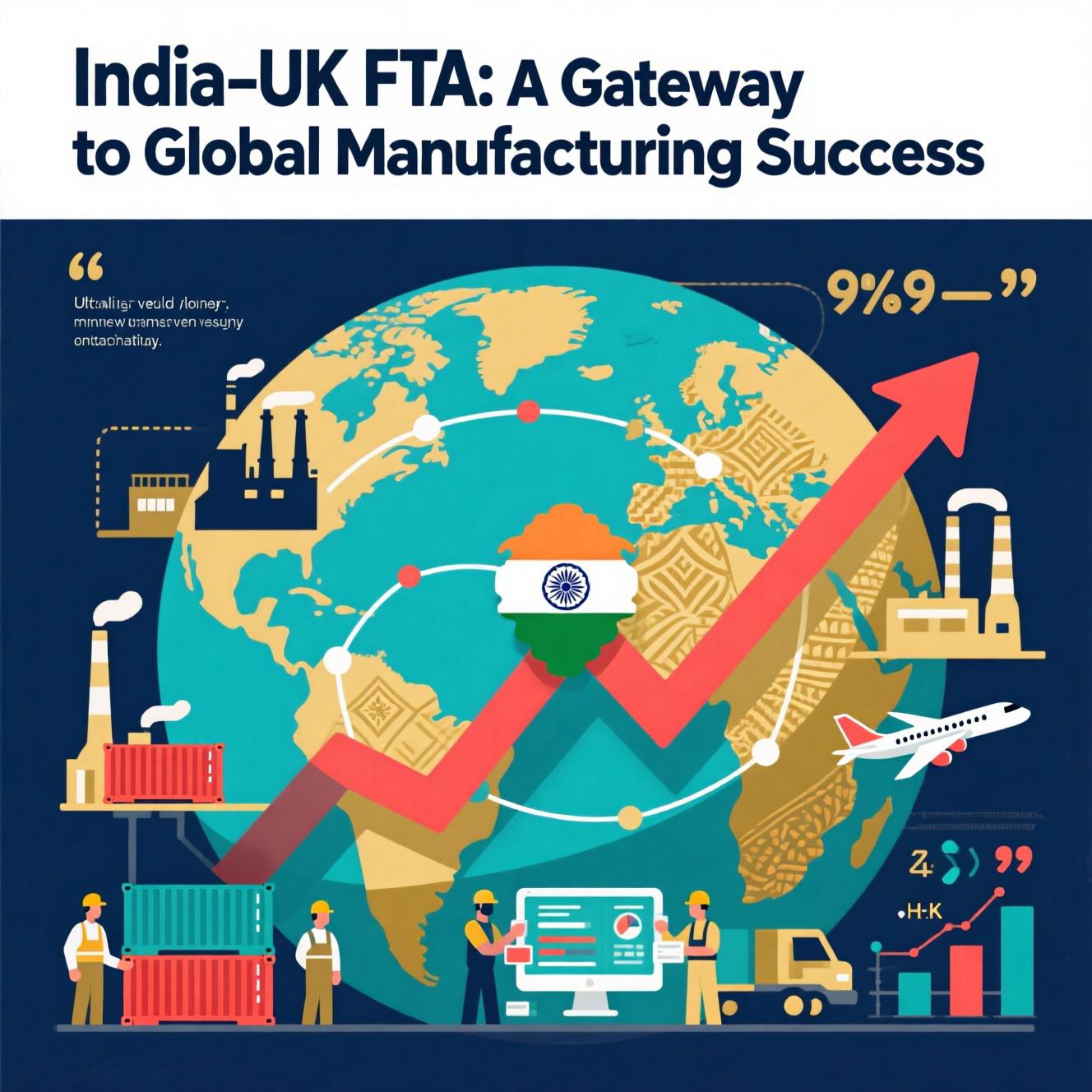A Landmark Shift in Global Trade
A landmark shift is underway: with the India–UK Free Trade Agreement now in place, a staggering 99% of Indian Manufacturing exports—ranging from engineering goods and auto components to textiles, marine products, pharmaceuticals, and processed foods—are slated for duty-free access to the UK. Yet beyond opening markets, this moment challenges whether your operations are truly primed for global expansion.
Opportunities Opening Wide... But Only for the Ready
The stage is set—but success hinges on readiness. This unprecedented market access comes with equally unprecedented expectations for quality, compliance, and operational excellence.
Critical Readiness Questions
Are your quality systems aligned and certified—leveraging ISO9001 to ensure consistent, compliant, and customer-centric operations?
For automotive players, do you meet IATF16949 standards that emphasize defect prevention, supply chain traceability, and continual improvement?
Is your underlying infrastructure integrated enough—perhaps using IndiAps, a cloud-based ERP designed for manufacturing—to provide real-time visibility, process automation, and quality traceability across production, procurement, and inventory?
Performance Essentials, Not Optional Enhancements
These aren't optional enhancements—they're performance essentials. ISO9001 drives consistency, efficiency, regulatory compliance, and continual improvement, making it foundational for Indian Manufacturing firms seeking global competitiveness.
ISO9001 Certification
Drives consistency, efficiency, regulatory compliance, and continual improvement—foundational for global competitiveness.
IATF16949 Standards
Built atop ISO9001, adds precision for automotive sectors—from audit discipline to defect prevention and waste elimination.
At the same time, leveraging a modern ERP like IndiAps can be the backbone of digital transformation—linking quality controls, traceability, production planning, and compliance in one unified cloud platform.
Think Beyond: Is the US Next?
Global trade opportunities are fluid. As Indian Manufacturing reaps benefits in the UK, other markets—like the US—could soon follow. But they'll demand even higher operational maturity and certification reliability.
Market Expansion Timeline
UK Market - Active Now
99% duty-free access for Indian manufacturing exports
US Market - Potential Next
Higher operational maturity and certification requirements expected
Are You Ready? A Quick Self-Assessment
Before diving into these new market opportunities, conduct an honest assessment of your current operational readiness:
Certification Status
Do you hold up-to-date ISO9001 or IATF16949 certification? These aren't just badges—they're operational frameworks that ensure consistent quality.
Quality Processes
Are quality audits and process reviews part of your daily workflow? Continuous improvement must be embedded in your operations, not an afterthought.
Compliance Management
Can your systems manage compliance documentation, traceability, and origin certification without friction? Global markets demand seamless compliance workflows.
Infrastructure Agility
Is your infrastructure agile enough—supported by tools like IndiAps—to scale with new FTA regulations and demand surges? Flexibility is key to capitalizing on opportunities.
The IndiAps Advantage
IndiAps provides the integrated cloud-based ERP infrastructure that modern manufacturers need to compete globally. Our platform seamlessly connects quality controls, traceability, production planning, and compliance in one unified system—giving you the operational backbone for international success.
Real-time Visibility
Complete transparency across production, procurement, and inventory
Process Automation
Streamlined workflows that reduce errors and improve efficiency
Quality Traceability
End-to-end tracking for compliance and quality assurance
The Bottom Line
Ultimately: if you're prepared to compete in the UK today… will your Indian Manufacturing operation be ready to win in the US tomorrow? The answer lies not just in market access, but in operational excellence, quality systems, and the right technology infrastructure to support global ambitions.

